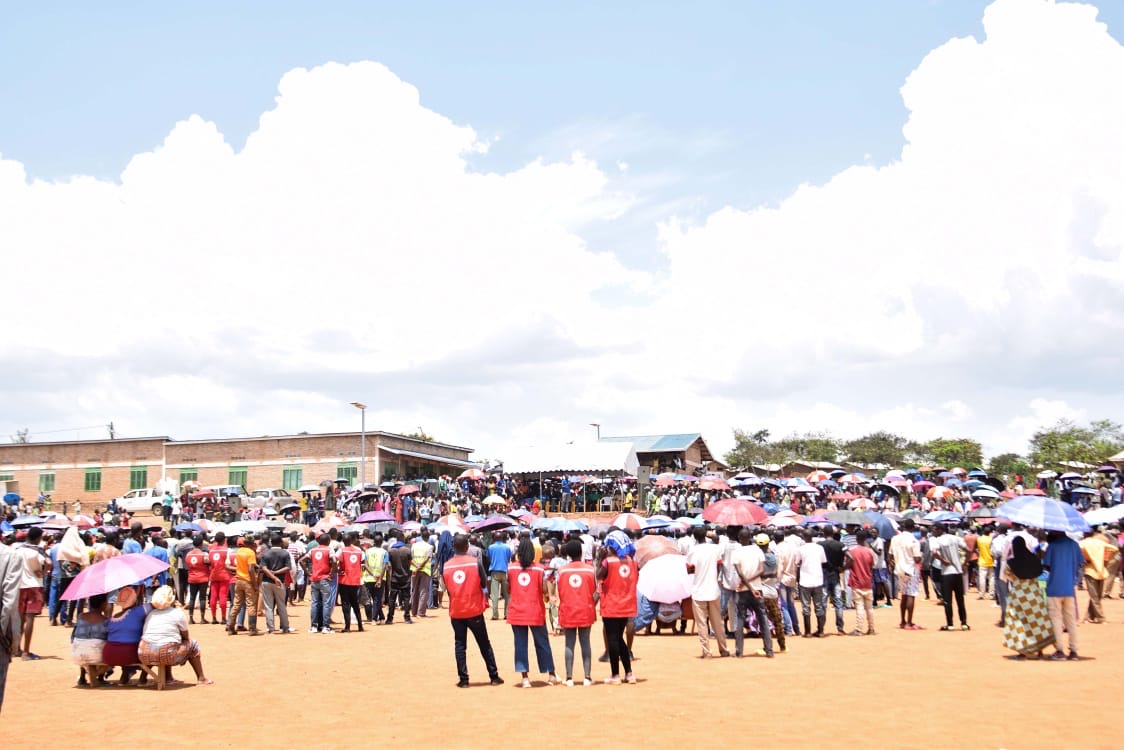Mahama (Rwanda) : high living cost and growing poverty in the refugee camp

SOS Médias Burundi
Mahama, June 27, 2025 – In Mahama camp, in eastern Rwanda, the life of refugees is becoming more unbearable every day. The drastic reduction in financial and food assistance is plunging thousands of people into extreme poverty. Starvation, theft, school dropouts, and psychological distress are increasing, fueling fears of social collapse within the camp. Refugees are sounding the alarm, calling on the Rwandan government and its partners to take urgent action.
The Mahama camp, located in eastern Rwanda, is in the grip of growing poverty. Since the drastic reduction in food rations, refugees have been experiencing an alarming situation and are sounding a cry for help.
On the ground, hunger is evident. According to a local source, the situation is worsening daily, fueled by soaring food prices and increased household theft.
« Here, no one leaves their clothes on the drying rack, nor a pot, a gas bottle, or a water container without locking the door. In a split second, thieves break in and take everything they find, » says a head of household who had just had his clothes stolen.
The crisis is also reflected in the camp’s schools, where rations distributed to pupils have been reduced.
« Many children come to school at lunchtime and then go home. They only come to eat, because there’s nothing left at home, » warn distraught educators.
« We can’t stop them; they’re simply trying to satisfy a vital need, » they add. According to them, this situation is leading to a decline in classroom concentration and an increase in school dropouts.
Since the beginning of April, financial assistance provided to refugees in Rwanda has been reduced by nearly 50%. The most vulnerable refugees, classified in the first category, now receive 5,600 Rwanda francs (RWF) per month, compared to 8,500 RWF previously. Those in the second category have seen their assistance reduced from 4,250 to 2,800 RWF. These amounts are considered paltry, even though they were used to supplement basic nutrition, particularly through the purchase of vegetables, fruits, and other essential products.
« Even with the previous amounts, hunger persisted. Today, with this reduction, we can only expect the worst, » confided a refugee from the Mahama camp.
Speculation is rife. Some fear that, starting in July, the distribution of cooking gas cylinders and food aid will also be suspended. While no official statement has yet been made by community leaders or UNHCR officials, this uncertainty is fueling growing anxiety among refugees.
According to community leaders, some are beginning to show signs of trauma, and there are even fears of « suicidal repatriations. »
Trust is eroding within communities. Several tontines are currently being liquidated prematurely. « First, we want to enjoy the money we’ve saved, and then we no longer trusty each other. The treasurers can take our savings or run away with them, » explains a member of one of these tontines.
The crisis is also visible in the health sector. Patients requiring care in specialized hospitals have been unable to access them due to lack of resources, laments the deputy head of the Mahama II health center. These medical transfers, now suspended, included the CHUK, Kanombe, and King Faisal hospitals in Kigali, Butaro for cancer treatment, and Kabwayi for ophthalmological care.
Faced with this critical situation, refugees are launching an urgent appeal.
« Life is becoming increasingly unbearable. We call on the Rwandan government to intervene or seek other donors to fill the gap, » pleads a representative of the Burundian refugees in the camp.
The United Nations High Commissioner for Refugees (UNHCR) shares this concern, stressing that this crisis could have serious repercussions on food security and social stability within the camps, particularly in Mahama, whose population now far exceeds the peak reached in 2015.
The camp currently hosts more than 76,000 refugees. Recent clashes between the Congolese army and the M23 movement have contributed to a new wave of arrivals, further exacerbating the situation.

